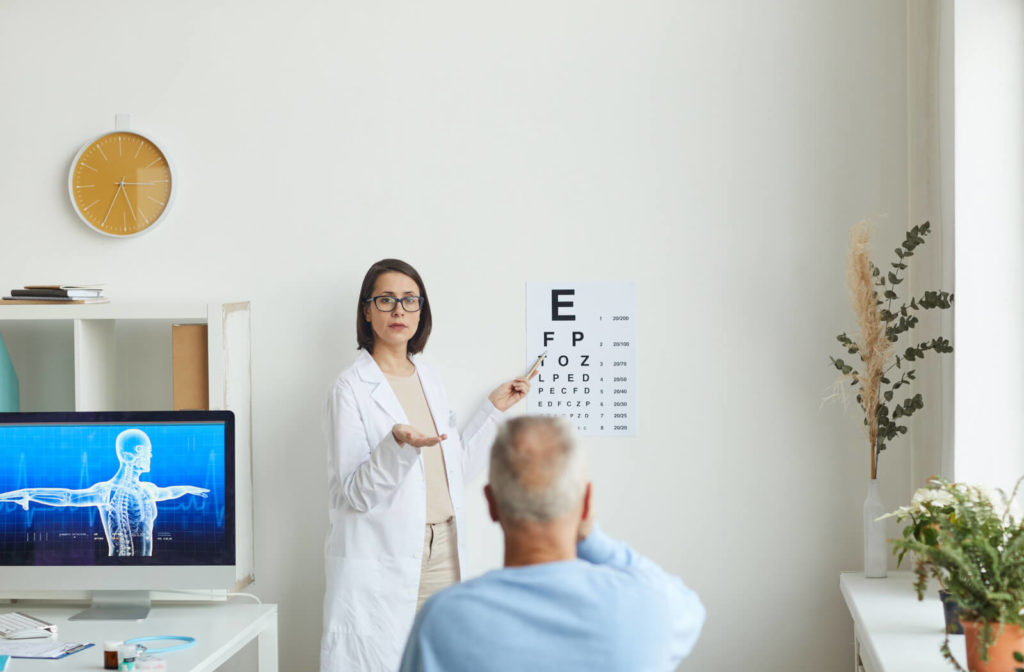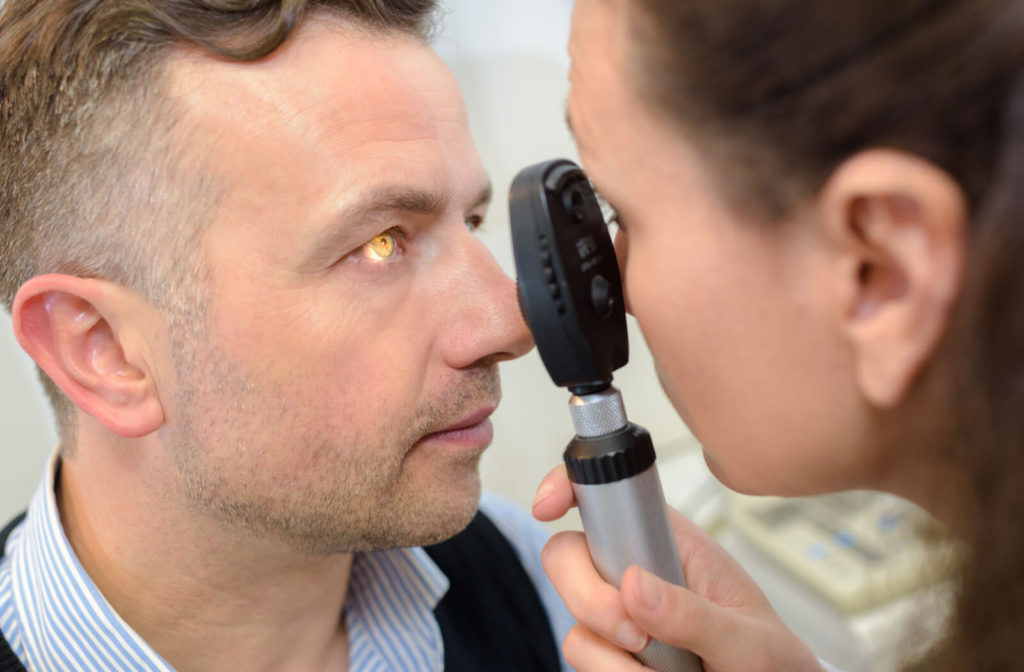Eye exams play an important role in your eye health, helping your optometrist diagnose eye conditions and test your vision. Your eye doctor can identify many eye-related issues during your exam, but what about diabetes?
Eye exams can diagnose more medical conditions than you think, including those that may not seem eye-related. These exams can identify diabetes, even if someone hasn’t been diagnosed before.
How Can an Eye Exam Detect Diabetes?
While your eye doctor won’t know if you have diabetes by testing your vision, comprehensive eye exams include a detailed look at your eyes.
Your optometrist completes a detailed eye health evaluation during your exam, looking at the eye’s internal structures through a powerful microscope. They can examine many parts of the eye, including your retina and optic nerve. Looking at these structures can help identify several eye diseases, like glaucoma or cataracts.
Your eye doctor can identify diabetes by looking at the retina’s blood vessels. These tiny vessels can leak fluid or blood when you have diabetic retinopathy, which only develops when you have diabetes. Some patients may develop this condition before they’re officially diagnosed with diabetes.
How Does Diabetes Affect Your Eyes?
Many people assume diabetes doesn’t affect the eyes, but this disease can impact your overall health in many ways. Diabetes affects how the body uses insulin, which can lead to high blood sugar.
Damage can occur to the blood vessels in your eyes when blood sugar is high for long periods. The blood vessels in the retina become damaged, leading to potential vision loss if left unaddressed. Additionally, diabetes can increase your risk of several eye diseases.

Diabetes Can Put You at Risk of Eye Disease
Anyone with diabetes is at risk of developing diabetic eye disease, a term to describe eye conditions caused by diabetes.
High blood sugar can damage the blood vessels in your eyes. When this happens, you’re at risk of several eye conditions, including:
- Cataracts: A cataract is the clouding of your eye’s natural lens, occurring when the lens becomes less flexible. Parts of the lens begin to stick together, creating the dull clouds of a cataract. If left untreated, cataracts can lead to vision loss.
- Glaucoma: Glaucoma is a group of eye diseases that damage the optic nerve. When the optic nerve experiences damage, it can lead to severe vision loss, even blindness. Your risk of certain types of glaucoma can be up to twice as high if you have diabetes.
- Diabetic retinopathy: Diabetic retinopathy is a disease patients with diabetes can develop. It occurs when damaged blood vessels in the retina leak fluid and blood into the eye. As this disease progresses, it can lead to further damage, scar tissue, and other complications.
- Diabetic macular edema: Diabetic macular edema can develop from diabetic retinopathy. This condition occurs when fluid from the retina pools under the macula. This swelling in the macula can lead to vision loss.
Regular Eye Exams for Diabetes Management
Diabetes increases your risk of eye disease, but your eye doctor is here to help. Regular eye exams can help identify eye problems as early as possible. Your optometrist can treat eye conditions sooner and prevent unnecessary vision loss.
How Often Do You Need an Eye Exam When You Have Diabetes?
Each person’s eye health situation is different—you should have an annual eye exam at the minimum if you have diabetes. Depending on your eye health and vision, your eye doctor may want to see you more frequently. They can recommend an ideal schedule during your eye exam.
If you’re newly diagnosed with type 1 diabetes, the American Diabetes Association recommends you have your first eye exam within 5 years of diagnosis. Someone with type 2 diabetes should have an eye exam within a few months of diagnosis.
Protect Your Vision with Help from Your Eye Doctor
Eye exams are your best way to protect against eye diseases, helping your optometrist identify them as early as possible. They can recommend a customized treatment plan to reduce your risk of vision loss.
Remember to book regular visits to your optometrist following the schedule they recommend. Contact San Clemente Optometry when it’s time for your next eye exam.




